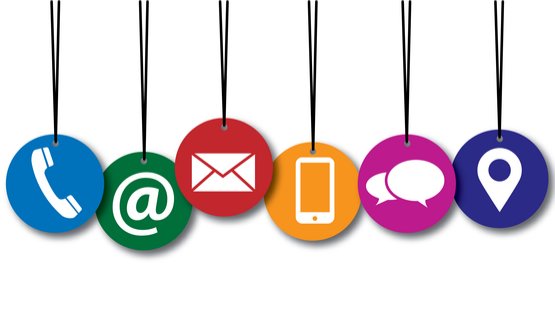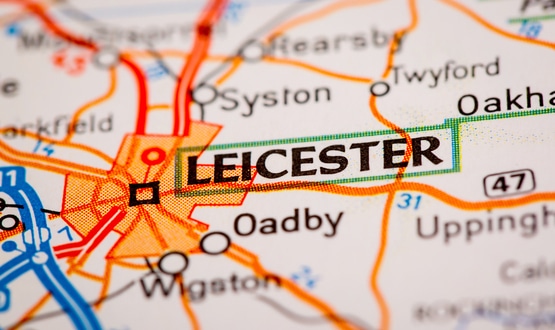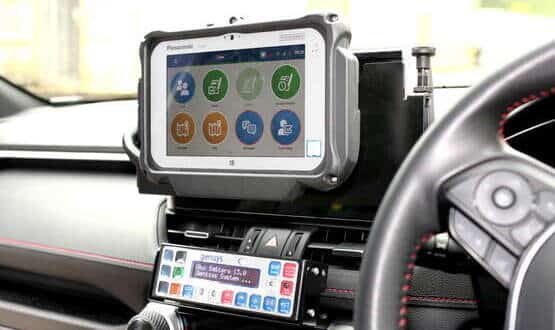The future is now when it comes to digital communication with patients

Text messaging transformed the way many of us communicate, and the next generation of such communication promoses to do the same again. Here Kenny Bloxham argues the NHS valuably could – and indeed should – harness these new tools, for the benefit of patients and staff alike.
Imagine if you could help patients book a hospital clinic appointment, navigate to a new hospital and check in – all via a single automated communication and with no need for a dedicated NHS app.
Today’s digital messaging technology – Facebook Messenger and WhatsApp or promising entrants like Apple Business Chat and RCS (Rich Communication Service – the much touted successor to SMS) – can do exactly that. But while the efficiency and effectiveness of such tools are already proven in business, the NHS is yet to comprehensively support them.
That’s despite integrated SMS, email and voice communications being well proven at many hospital trusts. At Healthcare Communications we commissioned a survey on patients’ communication preferences. More than half said they would like to receive letters digitally.
Make digital the default
Digital messaging’s rich content can let patients receive everything from medication details to self-help videos. For an appointment message, you could attach a PDF with a map and directions, along with a QR code to allow self check-in.
These digital channels support the Accessible Information Standard, allowing for translation or for text to be read aloud by the phone. They also feature encryption and can verify senders – perfect for the secure communications that the NHS requires.
Apple Business Chat offers rich media benefits and works with iOS devices, so there’s no need for Apple users to download an app. RCS could also be attractive for patient communications. It’s predicted to gradually supplant traditional SMS and is commonly referred to as the next evolution of text messaging.
RCS has all the rich media advantages I’ve already mentioned but, like SMS, it’s a mobile native channel so consumers can access it without downloading an app. Currently it’s supported natively by Android, as well as by an increasing number of network operators.
Global RCS users currently number around 350 million and that’s rising fast, with over a billion forecast in 2019 according to trade body The GSM Association. Reports from market research firm Mobilesquared suggests that total will grow further to over 3.2 billion users by 2023, leaving the likes of WhatsApp (currently 1.5 billion users) far behind.
Adding automation
Digital messaging channels like RCS open the door to simple automation for basic query handling (FAQs) and form filling, moving the functionality and services of expensive-to-create apps into a low-cost, accessible channel.
Automated dialogues with suggested reply buttons and actions can guide patients interactively through surveys, whether it’s to gauge whether they need a follow-up appointment or to complete the Friends and Family questionnaire. Powerful yet easy to deploy, these messaging workflows can work directly with patient administration systems to handle interactive appointment management, including rescheduling.
Even more efficiency is possible by using artificial intelligence. This type of AI isn’t about patient diagnosis but informing intelligent agents (aka chatbots) to resolve inbound patient queries.
With chatbots that can understand natural language, patients could ask for information as they would a human agent – with the latter just a click away if required. If you want an example of how society in general has accepted this kind of interaction, just look at the meteoric rise of voice-enabled home assistants like Alexa.
Changing chatbots
With the ability to pick up on information in free text responses and to then use it to tailor additional questions, fully-fledged chatbots can glean far more valuable data from survey responders using Natural Language Processing (NLP). That capability could give them the ability to handle clinical triage for first or follow-up appointments, with each question based on the previous answer.
Chatbots are a great way to support self-care, with automated reminders to patients to take their medication or take exercise. They are sophisticated enough to handle the messaging conversations for patient initiated pathways, PROMs (Patient Reported Outcome Measures) and PREMs (Patient Report Experience Measures), helping to reduce hospital visits for patients and the number of calls that nurses currently make.
This is today’s technology, not tomorrow’s. Brands like Lidl and Burberry have already embraced AI-driven chatbots for tasks as diverse as selecting wine, suggesting clothing choices and providing car insurance quotes. Gartner has reported that, by 2020, 85% of customer interactions will be managed without a human and chatbot adoption globally is predicted to save $11 billion in annual customer service costs by 2023 according to Juniper.
Let’s try it out
These technologies are ready now and piloting them in the NHS would not be difficult. Keep things simple and test the benefits before deploying them nationally.
The NHS has already proved how well SMS and email can work. Content-rich, automated digital messaging would reduce the current plethora of confusing, expensive apps, cut down on paper and reduce inbound calls to contact centres. Patients could talk to the NHS in ways and at times most convenient to them, getting closer to the seamless service they experience in other aspects of their lives.
Kenny Bloxham is director at Healthcare Communications





2 Comments
I wonder if we were having this conversation in about 1919 whether we would be talking about the telephone in the same way. “The telephone will revolutionise healthcare, patients will no longer need to come to the hospital, we can work remotely, it will be more efficient” etc etc
And yet 100 years on and we still haven’t really made the most of this most basic means of technology. I am a little bemused by the rush for video calls, when we haven’t really got to grips with telephone calls yet.
I do think that in all this excitement we need to focus using all available means of communication (including face to face) to deliver what is best for the patient in that setting. Some sometimes SMS, sometimes video, sometimes phone etc. Otherwise we run the risk of it all being about the technology and that doesn’t end well.
There are and always will be new technologies to change how we deliver care and provide accessibility for patients. Even Fax technology was new once ????and when it came in there was real push back at the loss of connection between health providers moving away from phones and personal notes.
All of the technology outlined in the article relieves on a one key enabling factor.
Simply that health providers are willing to make themselves uncomfortable for a few months whilst they learn how to use and integrate this technology into their working day. This will mean being driven a little more by technology and having to set new boundaries, like how long a in person consultation takes, email responses will need to have a time boundary.
The real challenge with all of this technology is that it is recorded for all time without any of the understanding of what is happening around it. If there is a issue you only see the bare digital record not the verbal understanding of what had already been communicated to the patient. The issue with all of communication types listed is that they are easily taken out of context…..
So how do we build a context for their use that makes them safe???
Comments are closed.